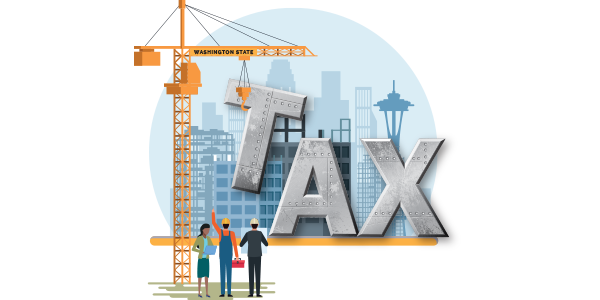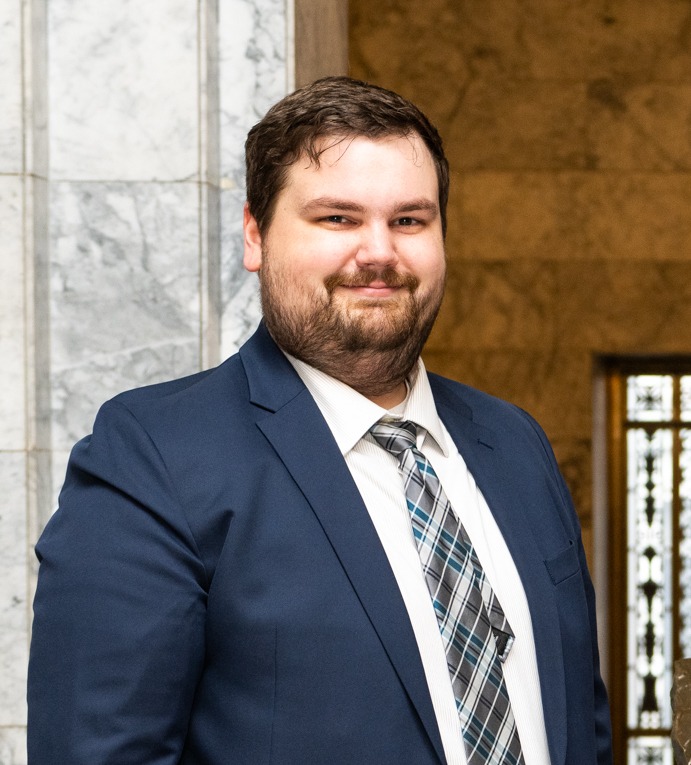Historic Tax Increases and Their Impact on CPAs: Where are we now?
October 28, 2025
by Mike Nelson

The 2025 Washington State legislative session ended with the largest combination of tax increases in the state’s history. Various changes will affect nearly every industry in Washington as well as CPAs, their clients and firms.
Engrossed Substitute House Bill (ESHB) 2081
ESHB 2081 makes noteworthy changes to the state’s business and occupation (B&O) taxes, including the addition of a tier and rate in the “other service” industry, which covers most CPAs. Service providers earning gross receipts annually in excess of $5 million will now be subject to a B&O tax rate of 2.1 percent. This is an increase for these companies from the rate of 1.75 percent, which previously had been levied on any company making more than $1 million in gross receipts annually.
Another part of this bill addresses some of the confusion of the Antio,LLC vs. Dept. of Revenue Washington Supreme Court (Antio) case from last year, which has caused significant uncertainty around the longstanding understanding and application of the investment deduction for B&O taxes. Specific updates in the bill include:
- The Supreme Court’s definition that deductible investments are only “investments that are incidental to the main purpose of the person’s business” is now in statute, so investment income will not be subject to B&O tax if the investments are incidental to the primary business activity.
- The language which was provided by the Washington State Department of Revenue (DOR) to the legislature also enacts a simple 5 percent threshold for the definition of “incidental.” This is more strict than the 5 percent safe harbor that DOR had described as their historical position during and after this court case.
- The law includes language that exempts mutual funds and most nonprofit organizations.
- To address the persisting areas of confusion around the Antio case, the legislation instructs the DOR to establish and provide rules and guidance on many of the remaining nuances.
Engrossed Substitute Senate Bill (ESSB) 5814
ESSB 5814 was another of the tax proposals that widely affects the profession. This legislation changes the application of sales tax to a wide range of industries and activities. One of these changes was the removal of an exclusion to the definition of digitally automated services (DAS), which had traditionally been used as the basis for professional services to not be subject to sales tax even when transferred electronically. While the DOR has not entered official rulemaking and it is unknown when it will do so, in July they published frequently asked questions (FAQs) which state that, in general, accountants are not subject to retail sales tax because of these changes. DOR has stated that professional services have previously been considered "another services classification” under the B&O tax, and technology used in the performance of those services is already subject to retail sales and use tax.
It is important to keep in mind, however, that DOR FAQs are not legally binding and are “not intended to cover every situation.” In the interim guidance published in early September, the DOR stated that they do not believe CPA services were intended to be taxed by the legislature but that this may change, depending on legislative clarification in 2026 and the final rulemaking process.
This legislation also impacts the profession directly in other ways. Sales tax was expanded to apply to data processing and temporary staffing. DOR is currently determining how to define these tools, but activities like bookkeeping, payroll, etc., could be examples of data processing according to the published FAQs. Likewise, CPAs who provide services through a temporary staffing agency might have their services subjected to sales tax, depending on how that staffing relationship is formed. If you provide services through a temporary staffing agency, review the DOR guidance for your specific situation.
Sales tax also has been expanded to live presentations, including all CPE classes and conferences after October 1, 2025. There have been positive conversations with legislators on potentially addressing this during the 2026 session and DOR is still reviewing potential guidance in the meantime. However, it is likely that any event in person or online, that allows for a real-time communication between the presenter and audience, would be subject to sales tax.
Moving Forward
These bills (and others not mentioned) were all passed within two weeks of the end of the session. Governor Ferguson, as he signed the bills, acknowledged that the many unintended consequences of the bills would need to be addressed.
DOR announced in June that there would not be time to complete official rulemaking for these taxes considering how soon they would be implemented, October 1, 2025, for the vast majority. DOR has been trying to issue informal guidance through FAQs and interim guidance prior to October 1. Legislators and the DOR have already begun preparing several technical correction bills for the legislature to consider during the 2026 legislative session.
Along with other organizations and various firms, the WSCPA advocacy team is pushing for tax changes to be part of these bills when the lawmakers reconvene.
Stay Up-to-Date on the Latest Advocacy News and Highlights!
The WSCPA's goal is to provide members with the most current news and advocacy resources. Find news and updates on a variety of issues such as legislation, proposals, and changes to regulation on the WSCPA advocacy blog, All Things Advocacy.

Mike Nelson is WSCPA Manager of Government Affairs. You can contact Mike by email.
